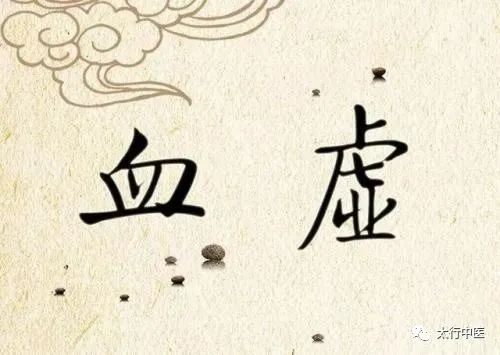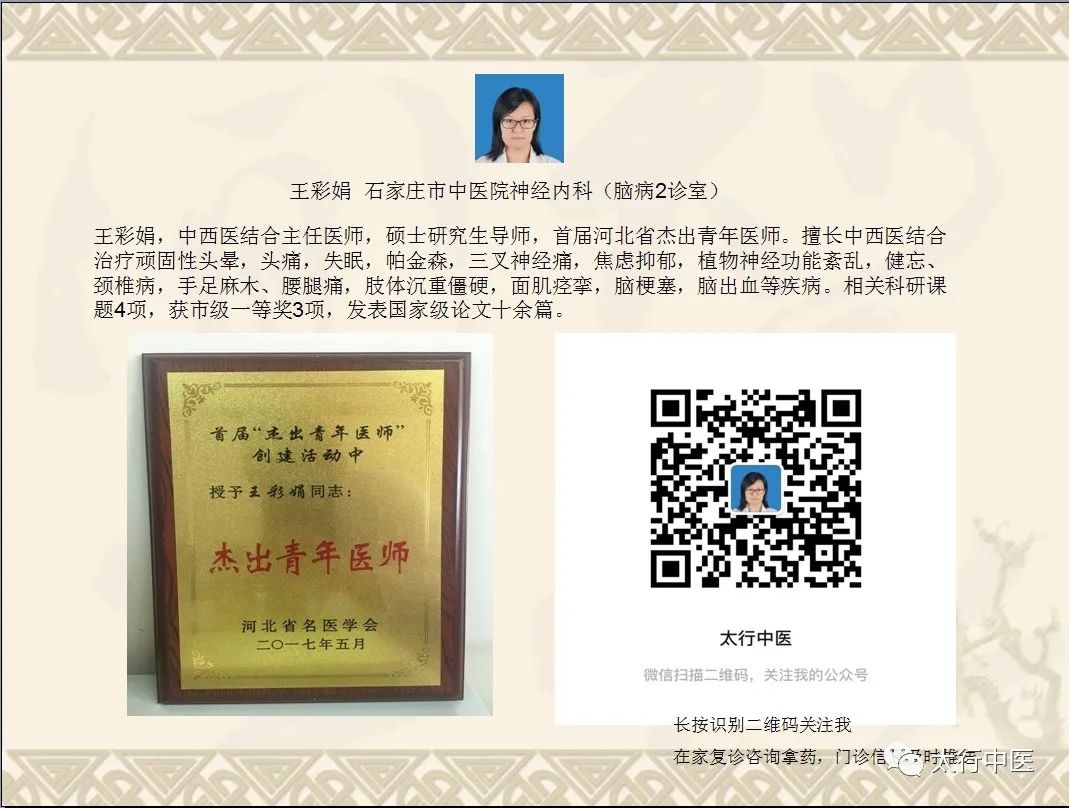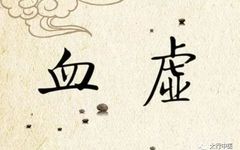In previous articles, we have introduced the concept of blood deficiency (xue xu). Many people want to know how to address blood deficiency, so today we will discuss how to “nourish blood” in daily life.
1. Manifestations of Blood Deficiency

Symptoms of blood deficiency include pale or sallow complexion, pale lips, pale nails, and a pale tongue; dizziness, insomnia, vivid dreams, and forgetfulness; dry eyes or blurred vision; numbness in limbs; scanty and light menstrual flow; lackluster hair; a generally thin physique; and a thin pulse. Blood does not nourish the eyes, leading to dryness or blurred vision; blood does not nourish the tendons, causing numbness in the limbs; blood deficiency results in reduced blood flow to the uterus, leading to scanty and light menstrual flow, often delayed; blood does not nourish the body, resulting in a thin physique; and insufficient blood volume can lead to a feeling of a thin pulse. In summary, the characteristics of this constitution are “deficiency” with a lack of color in the appearance.
2. Dietary Therapy and Daily Care for Blood Deficiency
First, let’s understand some common foods for blood deficiency: longan (guiyuan), jujube (dazao), milk, pig liver (zhu gan), chicken liver (ji gan), pig heart (zhu xin), pig blood (zhu xue), eggs (ji dan), goji berries (gouqi zi), sweet potatoes (fan shu), tomatoes (fan qie), black fungus (mu er), peaches (tao), mulberries (sang shen), grapes (pu tao), black sesame (hei zhi ma), peanuts (hua sheng), etc. Let’s talk about a common ingredient—longan, also known as longan flesh. It is sweet and slightly warm, with the effects of tonifying the heart and spleen, nourishing blood, and calming the spirit. It is primarily used for both qi and blood deficiency, especially for insomnia and forgetfulness due to blood deficiency. You can use about 10 grams of longan flesh, add a small amount of sugar, and soak it in water to drink. If there is restlessness, you can add about 10 grams of lily (baihe).
Here are some common dietary therapies for blood deficiency:
- Pig Liver and Egg Soup: Pig liver is sweet and bitter, warm, and is effective for nourishing the liver and improving vision, tonifying qi and blood, primarily treating liver deficiency leading to blurred vision and night blindness. Use 1 piece of pig liver, 2-3 eggs, and an appropriate amount of green onion, and boil to make soup.
- Spinach and Pig Liver Soup: The ratio is about 50 grams of spinach to 150 grams of pig liver, with appropriate seasonings, boiled into soup. Spinach is sweet, cool, and moistening, with the ability to nourish blood and moisten dryness, and it pairs well with pig liver, which nourishes blood and supports the liver.
- Green Bean and Jujube Soup: Use 15 green beans and 15 jujubes, with an appropriate amount of brown sugar. Boil the green beans until they bloom, then add the jujubes and cook until soft, adding sugar to taste.
- Peanut and Jujube Soup: Use 30 grams of peanuts, 10 jujubes, 15 grams of honey, and rose. Boil in water to drink.
- Pig Skin Soup: Use 100-150 grams of pig skin, half a bowl of yellow wine, and 50 grams of brown sugar. Boil the pig skin in yellow wine mixed with an equal amount of water until tender, then add brown sugar.
- Spinach and Egg: Use 250 grams of spinach, boil in water, and add 1-2 eggs, consuming both the vegetables and the soup.
- Lamb Bone Soup: Use 250 grams of lamb bones, 30 grams of black beans, 20 grams of goji berries, and 20 jujubes. Boil with water for 20 minutes, remove the bones, and season with a little salt.
- Yam and Ginseng Soup: Use 30 grams of yam, 6 grams of ginseng, 10 jujubes, and 250 grams of lean pork. Cook with an appropriate amount of water until done.
- Black Fungus Soup: Use 20-30 grams of black fungus, boil into soup, and add an appropriate amount of white sugar to drink warm.
- Longan and Rock Candy Drink: Use 10 grams of longan flesh, soak in water with an appropriate amount of rock candy as a tea substitute.
- Black-boned Chicken Soup: Use one black-boned chicken, cleaned and cut into pieces, with an appropriate amount of water and 50 grams of astragalus (huangqi), and steam until the chicken is tender, seasoning with a little salt to taste.
- Finally, two common home-cooked dishes: radish stewed with beef and clear stewed ribs.

3. Daily Precautions for Blood Deficiency
- Those with blood deficiency should be cautious with all types of cooling, cold, and raw foods.
- Since blood and sweat share the same source, individuals with blood deficiency should avoid excessive heat and sweating in summer, and should not engage in activities like sweating therapy, as excessive sweating can easily deplete blood and damage fluids.
- Individuals with blood deficiency are generally weak and should avoid strenuous labor that causes excessive sweating and depletes qi and blood. Additionally, since blood is the material basis for mental activity, excessive mental strain can easily damage blood and harm the spleen and stomach, which are the source of qi and blood production. Therefore, those with blood deficiency should especially avoid overthinking and mental strain.
- People with blood deficiency should not engage in excessive exercise, as it can lead to excessive sweating. Instead, aerobic exercises are emphasized. Practices such as qigong, tai chi, Ba Duan Jin, Wu Qin Xi, and yoga generally require breath regulation, which is beneficial for nourishing qi and enhancing blood production. From a modern exercise perspective, low-intensity, high-frequency activities such as walking, jogging, cycling, and dance fitness are good choices, ensuring moderate aerobic exercise, “exerting the body without fatigue.”
That concludes the daily care for blood deficiency. I hope you have learned a lot. Have you understood it now?
Written by Yan Lingbo
Edited by Huo Yingying
Guided by Wang Caijuan, Shijiazhuang TCM Hospital
Image source: Internet


